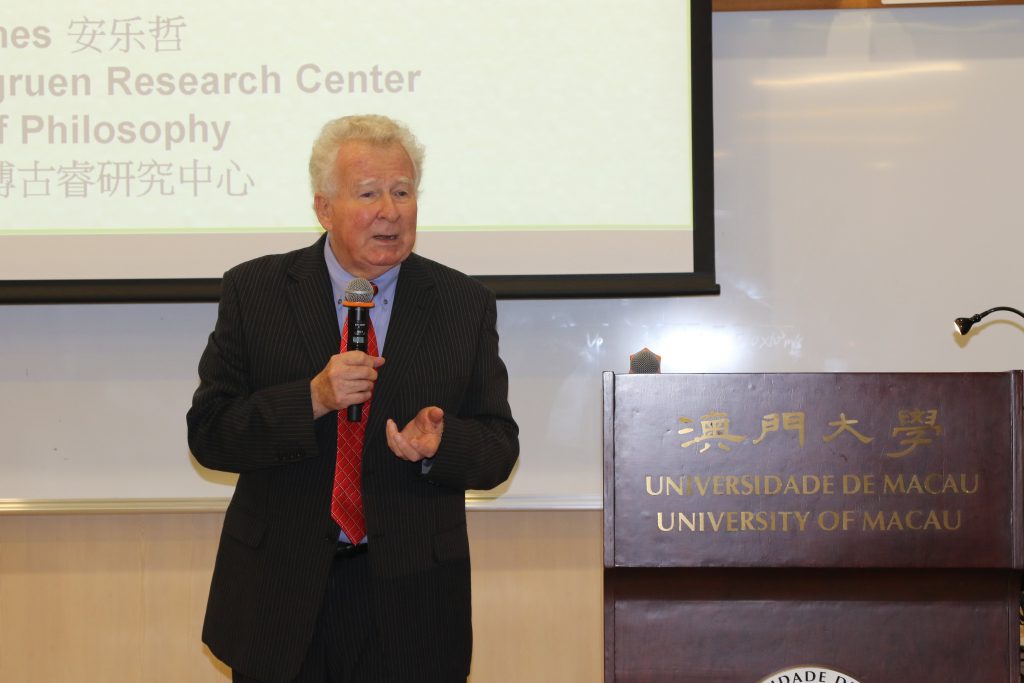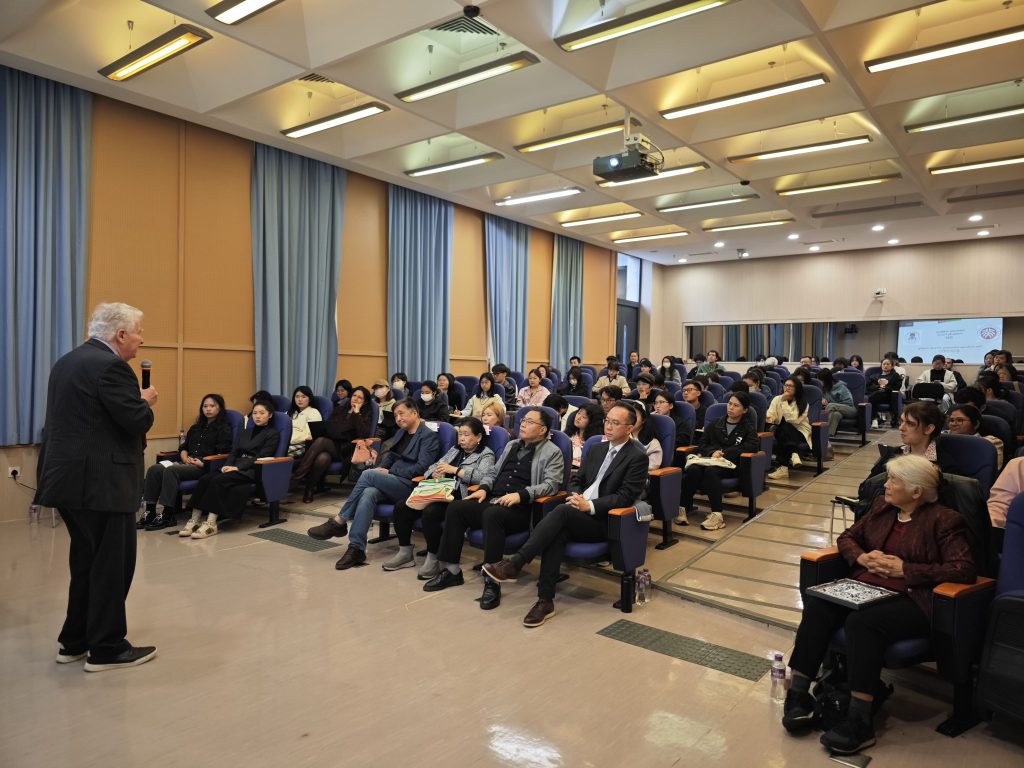The Faculty of Arts and Humanities (FAH) of the University of Macau (UM) held the Macao Humanities Forum. Roger Ames, Humanities Chair Professor and Berggruen Fellow at Peking University, delivered a lecture titled ‘The Confucian Philosophy of Family Feeling as an Inspiration for a New Geopolitical Order’. The lecture attracted the participation of many on-site and online participants, including students and faculty members of UM.
Speaking at the event, Joaquim Kuong, assistant dean of FAH, highlighted the fundamental role philosophy plays in humanities research. Wang Qingjie, associate dean of FAH and Distinguished Professor in the Department of Philosophy and Religious Studies, introduced Prof Ames’s academic achievements, saying that he is not only an expert in Chinese philosophy and pragmatism, but also an excellent translator and a prolific author, and that his lecture would be thought-provoking.
During the lecture, Prof Ames began by explaining the etymology of the concept of ‘family’ in the pre-Han period, suggesting that it might be seen as a kind of religious presence. He then interpreted ‘family feeling’ in the context of Confucianism as a way of treating others on the basis of equity. Inspired by the Confucian saying ‘Exemplary persons seek harmony not sameness; petty persons, then, are the opposite’, Prof Ames sought to apply the Confucian understanding of ‘family feeling’ to international relations, changing the nature of international relations from a zero-sum game to one that achieves a win-win situation. During the Q&A session, Prof Ames engaged in in-depth discussions with UM students and faculty members, as well as online participants.
This was the fourth lecture of the Macao Humanities Forum in the 2023/2024 academic year. Each year, the forum invites renowned scholars in different fields of the humanities to share their latest research findings with students and faculty members. Previous lectures of the forum have covered a wide range of subjects, including literature, linguistics, history, translation, and the arts.

Roger Ames

The lecture attracts the participation of many students and faculty members

